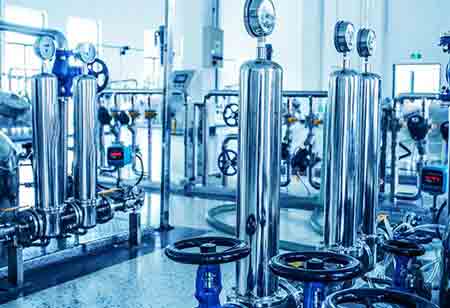The petrochemical industry is enhancing production efficiency, reducing energy consumption, and minimizing emissions by focusing on advancing catalyst technology, developing new materials, and exploring renewable feedstocks.
FREMONT, CA: Catalysts, often overlooked in the petrochemical industry, are crucial in converting raw materials into diverse products, including plastics, fibers, detergents, and pharmaceuticals. By facilitating chemical reactions without undergoing consumption themselves, catalysts substantially improve production efficiency, lower energy consumption, and reduce environmental impact.
In the petrochemical industry, catalysts play a pivotal role, with various types employed to optimize specific processes. Zeolites, crystalline aluminosilicates with a porous structure, are essential in cracking, isomerization, and alkylation due to their ability to facilitate catalytic reactions. Metal catalysts, including platinum, palladium, nickel, and cobalt, are crucial for reforming, hydrogenation, and dehydrogenation. Heterogeneous catalysts, which exist in a different phase from the reactants (usually solids in gas or liquid phases), are commonly utilized in refining and petrochemical production. Conversely, homogeneous catalysts operate in the same phase as the reactants and are predominantly used in polymerization and oxidation processes.
The use of catalysts in petrochemical processes offers several benefits. They enhance production yield by optimizing reaction conditions, which leads to higher product outputs and reduced waste. Catalysts also improve energy efficiency by lowering reaction temperatures and pressures, resulting in substantial energy savings. Their selective nature helps minimize unwanted byproducts and contributes to emission reductions by facilitating cleaner combustion and selective catalytic reduction of pollutants and greenhouse gases.
The petrochemical industry is focused on advancing catalyst technology to meet the growing demand for sustainable and efficient processes. Research is directed towards developing new materials, such as metal-organic frameworks (MOFs) and nanocomposites, to enhance performance and durability. Innovations in catalyst design through computational modeling and machine learning are driving more efficient and selective catalysts. There is also a push for integrating catalyst development with process design to create systems that maximize efficiency and reduce environmental impact. Additionally, catalysts are being explored for converting renewable feedstocks, such as biomass, into valuable petrochemical products.
Recent advancements underscore the industry's commitment to sustainability. Enhanced stability in zeolites allows them to perform under more severe conditions, while nanostructured catalysts offer improved activity and selectivity. Advanced in situ characterization techniques provide real-time insights into catalyst behavior, aiding optimization efforts. Furthermore, a growing focus on life cycle assessment reflects an increasing awareness of the environmental impact of catalyst production and disposal. The petrochemical industry aims to achieve greater sustainability, efficiency, and profitability through these innovations while minimizing its ecological footprint.
Catalysts are essential tools in the petrochemical industry, enhancing production efficiency, reducing emissions, and facilitating the development of sustainable processes. With ongoing advancements in research and development, it is anticipated that even more innovative catalyst technologies will emerge, further shaping the industry's future.

